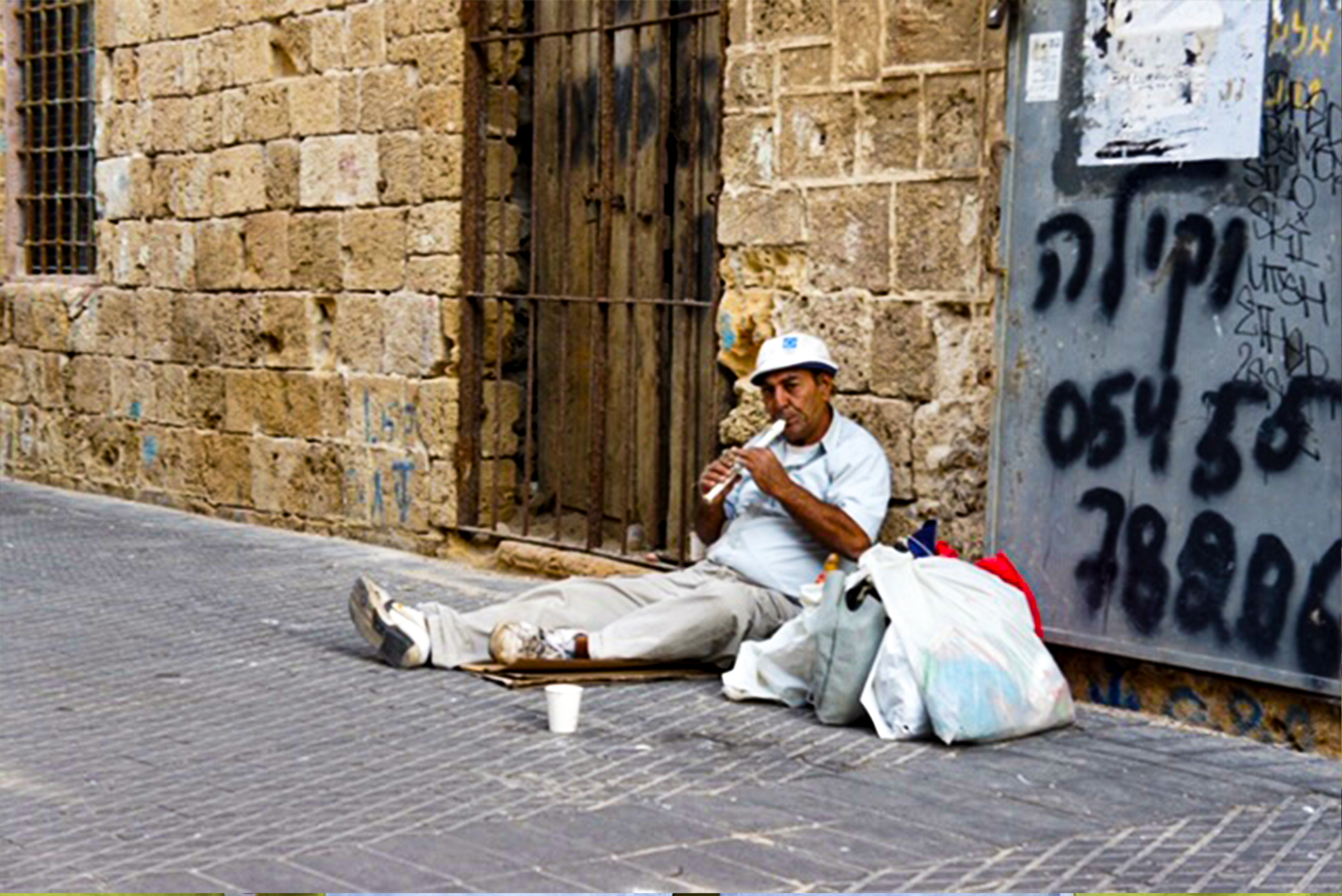
October 5, 2020
Peter and the Wolf
It’s not that I was lost. It’s just I didn’t know where I was. The rest of the group had gone to a museum. Or an exhibit. I’m not sure which. Only that I didn’t want to go. So I was walking the streets of Jerusalem aimlessly. Without a map. Without a plan. I may have been in Katamon. Or Ein Kerem. I’m not sure. I took a right. Then another right. That’s when I saw him. Leaning against a graffitied building, wearing an Olympics hat and looking very much like all of his worldly possessions were bundled next to him. I had a 20 shekel note in my back pocket and I balled it into my fist. I didn’t see the flute at first and he didn’t start playing it until after I reached down and tossed the crumpled bill into his styrofoam cup.
We were in Jerusalem. It is not uncommon to find grandmasters playing chess in the park or musical prodigies playing for change in back alleys. But I was still surprised how good he was. And maybe how judgmental I was. He played beautifully and effortlessly. You could tell he was good even though he had chosen a simple piece, a piece for tourists, for stragglers, for wanderers. He had chosen a piece for me.
When I was 10, I asked my father if he would buy me a guitar for my upcoming birthday. He said yes. The next day he brought home a flute and an ancient Armenian music teacher by the name of Artemis Zakarian.
In a negotiation and deal I was not a party to, my father had decided he would buy me a guitar if I could master one short classical piece on the flute.
Professor Zakarian, as he liked to be called, was said to have played the 3rd flute in the Leningrad Symphony Orchestra.
He and my father began discussing the possible pieces I might try and tackle. Zakarian wanted Debussy but finally very reluctantly settled on Prokofiev’s Peter and the Wolf.
The Professor made it clear he thought the piece was a little infra dig, a little beneath his dignity, but my father, though a strict disciplinarian, was nothing if not reasonable and convinced the professor to adjust his standards. The plan was an hour a week of lessons for twelve weeks combined with three hours a week of practice. Then I would get my guitar.
Which would have been a good plan, but no matter how hard I tried or how much I practiced, I was unable to elicit any sound which resembled either Peter or the Wolf from the unhelpful and unwilling flute.
Professor Zakarian would play the piece, hand me the flute, and I would butcher it in return. I was like Joey trying to speak French.
Zakarian quit after week five with a lengthy and weepy apology which was largely in Armenian and Russian with a smattering of English and French. I didn’t understand much of it but the gist of it was something about Prokofiev rolling in his grave. My father paid Zakarian in full and, even though I had not fulfilled my end of the bargain, bought me a used guitar. I was a little more proficient on the guitar but, in a pattern I would soon repeat time and time again, I quickly realized that in order to get good I would have to put in more work than I was prepared to do. The next year we sold the guitar in our yard sale.
The musician stopped playing and deftly scooped up the money and stashed it in his breast pocket.
“Todah,” “Thank you,” “Spaceba.” He thanked me in a trio of languages.
“Very nice,” I said.
“You know?” He asked.
I said, “Yes. Prokofiev.”
“Yasher koach,” he said using a Hebrew expression of praise.
I’m not sure why but he then extended his arm and handed me the flute.
“Do you play?”
I examined it. It actually looked familiar. I almost brought it to my lips but then I handed it back.
“No,” I said with a smile. “I think it is better if Zakarian rests in peace.”
The end.